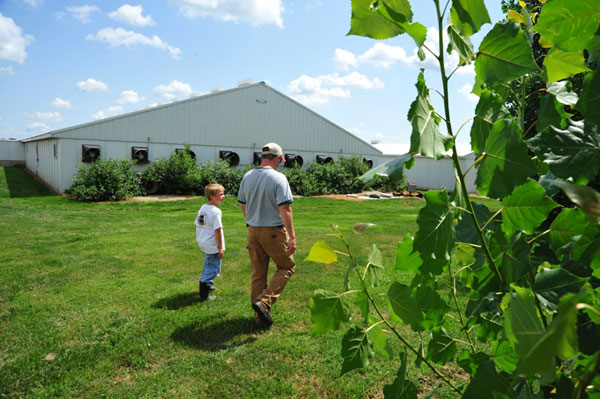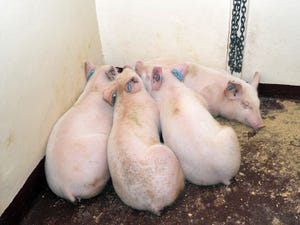Labor Department to Reconsider Child Labor Restrictions

Yielding to growing pressure from farmers, ranchers and members of Congress, the Department of Labor (DOL) announced that it will re-propose the portion of its regulation on child labor in agriculture interpreting the “parental exemption.” The rule proposed last September would have changed a statutory exemption to child labor laws that currently allow children younger than 16 years old to work for a parent. The change would have limited the exemption to farm operations wholly owned by a parent, raising concerns that children would no longer be able to work on farms owned by neighbors or relatives. DOL said, “The re-proposal process will seek comments and inputs as to how the department can comply with statutory requirements to protect children, while respecting rural traditions.” The House Small Business Subcommittee on Agriculture, Energy and Trade held a hearing on the proposed rule and its effect on agriculture youth. The National Future Farmers of America testified by saying, “We are concerned about the limits these rules provide on the ability and opportunities for our students to learn by doing. Learning by doing is a critical part of the preparation and education through which we prepare students for careers in agriculture and related occupations.” The American Farm Bureau Federation testified that “even traditional, routine farm chores, such as driving tractors, milking cows, cutting weeds and building or repairing fences would likely be considered illegal unless the farm on which the youth worked was wholly owned by his or her parents.”
Senate Agriculture Committee to Begin Farm Bill Hearings — Senate Agriculture Committee Chairwoman Debbie Stabenow has announced a series of hearings to examine farm bill principles and evaluate policy solutions to develop the 2012 Farm Bill. The hearing schedule is:
• Feb. 15 – Energy and Economic Growth for Rural America
• Feb. 29 – Strengthening Conservation through the 2012 Farm Bill
• March 14 – Healthy Food Initiatives, Local Production and Nutrition
• March 21 – Risk Management and Commodities in the 2012 Farm Bill
Groups Request Delay in STEC Testing — USDA recently announced a grant has been awarded to the University of Nebraska-Lincoln (UNL) to conduct research “to help reduce the occurrence and public health risks from Shiga toxin-producing E. coli (STEC) along the entire beef production pathway.” The research is to conduct a quantitative microbial risk assessment, develop and validate methods of detecting, isolating and enumerating the targeted STECs, conduct a risk assessment of STEC throughout the U.S. beef production system and identify the factors that cause the purportedly “high” rates of STEC prevalence and beef product contamination. A coalition of domestic and international meat groups are asking USDA to delay the implementation of the Food Safety and Inspection Service’s (FSIS) new policy on STECs until the research is completed by UNL. Those signing the letter included the American Association of Meat Processors, American Meat Institute, Canadian Cattlemen’s Association, Canadian Meat Council, Meat Industry Association of New Zealand and National Meat Association.
Ag Groups Support US-EU Trade Agreement — A coalition of 49 food and agricultural organizations has contacted the U.S. Trade Representative (USTR) expressing support for a free trade agreement between the United States and the European Union (EU). In a letter to Trade Ambassador Ron Kirk, the coalition said, “Carried out properly, such an agreement would indeed generate economic growth and create many thousands of new jobs on both sides of the Atlantic. Of course, this would require that the EU be prepared to negotiate and implement the type of high-standard, 21st-century agreement that is central to the (Obama) administration’s trade policy efforts.” The coalition also pointed out that EU regulatory measures often conflict with the interests of the United States and with World Trade Organization rules, especially regulations on “genetically modified” crop approval and labels and restrictions on production methods in poultry (antimicrobial use) and pork (ractopamine). Those signing the letter included the American Feed Industry Association, American Meat Institute, American Soybean Association, National Association of Wheat Growers, National Cattlemen’s Beef Association, National Chicken Council, National Corn Growers Association, National Meat Association, National Pork Producers Council, National Turkey Federation and U.S. Meat Export Federation.
USDA Announces CRP General Sign-up — USDA announced a four-week Conservation Reserve Program (CRP) general signup will begin on March 12 and end on April 6. CRP is a voluntary program available to help producers use environmentally sensitive land for conservation benefits. In return, USDA provides participants with rental payments and cost-share assistance. Contract duration is between 10 and 15 years. CRP contract offers are ranked according to the Environmental Benefits Index (EBI). These EBI factors are used to assess the environmental benefits for the land offered:
• Wildlife habitat benefits resulting from covers on contract acreage;
• Water quality benefits from reduced erosion, runoff and leaching;
• On-farm benefits from reduced erosion;
• Benefits that will likely endure beyond the contract period;
• Air quality benefits from reduced wind erosion; and
• Cost.
Currently, there are approximately 30 million acres enrolled in CRP with an estimated 6.5 million acres expiring on Sept. 30, 2012.
P. Scott Shearer
Vice President
Bockorny Group
Washington, D.C.
About the Author(s)
You May Also Like



